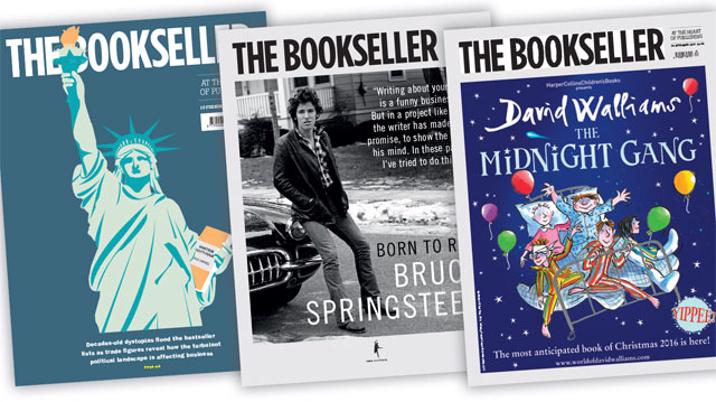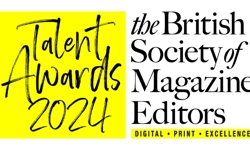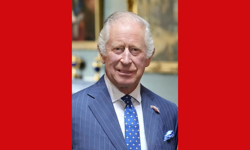
It was Victor Kiam, the perma-tanned US entrepreneur, who coined the phrase, “I liked it so much, I bought the company”. Kiam was talking about electric shavers, but the same sentiment applies to Nigel Roby, chief executive and, since 2010, owner of one of the most venerable of British magazine titles, The Bookseller.
Seven years ago, the publishing industry, like all others, was still reeling from the financial crisis. The book world was also grappling to understand the significance of the emergence of e-books.
But, while Roby admits it was a time of uncertainty, the e-book revolution was not something that exercised him overly at the time.
Publishers were still, after all, publishing – whether that was as traditional books or in e-book format. And The Bookseller, whose lineage stretches back to 1802, was a repository of vast amounts of knowledge about that industry. It seemed like a sound bet.
Even so, Roby admits to not fully appreciating just how much change was taking place in the world of publishing.
The first mainstream e-reader, the Sony Librie, came out back in 2004. But the game-changing device was the Kindle, which hit the market in 2007.
Period of calm
Now, the market has settled, at least for a while, Roby believes.
“It has stabilised. We know, publishers know, bookshops know, more about the levels of e-books (sales) relative to print,” he says.
“And print books have actually been growing over the last few years. E-books have stayed solid. It's an understandable market. That’s not to say there's not going to be more disruption.”
The size of the digital book market is hard to estimate with any precision, as there is little reliable reporting. Amazon doesn't reveal its figures. Data does come direct from the publishers, but that doesn't cover the whole of the market.
Print book sales in 2016 were worth £1.6 billion – up 4.9% on 2015, says Roby. 195.1 million books were sold – up 2.3%. He speculates that, if e-book sales were approximately 18% of the market, then the entire market is worth just shy of £2 billion.
For a publication such as The Bookseller, which has seen more than a few profound changes in the market during its 159-year history, the rise of e-books is just one more.
This is a magazine that, after all, has, as its website describes, “reported on every significant book trade event, from the launch of George Eliot's Mill on the Floss in 1860 to Allen Lane’s launch of the paperback to the demise of the Net Book Agreement in 1995 and today’s Amazon-led competitive struggles”.
It also lays claim to a fair few early interviews with before-they-were-famous authors, including, in 1997, one with a certain J.K. Rowling.
Today, the subscription-only magazine The Bookseller is read by approximately 30,000 people every week in 56 countries. Online, thebookseller.com is the trade’s most visited UK site, with over 200,000 unique monthly users. Its Twitter feed has more than 150,000 followers.
At its heart, though, what it produces is fundamentally unchanged since those very early days, says Roby.
The difference now is that all sectors of the industry use The Bookseller’s content, its analysis, each in their own way, for their own specific needs.
“So, publishers are looking at content from a competitive intelligence point of view, sorting trends; it’s also looked at from a stocking point of view; agents are looking at it from the point of view that, well, that particular area seems to be going well, so should we be talking to that author? So, in a sense, it’s one type of information that people use in different ways.”
The demand for market intelligence of this sort is one of the reasons the news content of the magazine has been ratcheted up in the past few years, Roby explains.
1995: The year of upheaval
Arguably, a more important shift in the book world happened long before digitisation anyway. Certainly, the collapse of the Net Book Agreement in 1995 was a seismic event.
This arrangement, which went back as far as 1900, effectively meant booksellers agreed on the retail prices of books. Its demise opened the way for large bookshop chains and supermarkets to offer books at big discounts.
“This caused THE biggest change in the market – and therefore a change in the way we reported on things,” says Roby. “It introduced the whole area of competition.
“And, ultimately, Amazon came into play. The UK market changed radically and so the reporting of book sales became a far more significant thing.”
The creation in 1967 of the International Standard Book Number, better known as ISBN, made the accurate recording of this data possible. The ISBN assigns each book a reference number, set according to its edition. The man who chaired the panel that brought the ISBN into existence was David Whitaker, whose family originally owned The Bookseller.
“The Whitakers were fantastically prescient in that regard,” says Roby. “They transformed the way book sales data was collected.”
And the publication, Roby says, has always been quick to reflect changes in the market it reports on.
As readers went online – a fair while before digital books arrived – so, too, did the magazine. It was an early mover, launching the first iteration of its website in January 1998.
“Back then, it was very much an adjunct to the magazine,” Roby says. “Whereas now, it’s a proper integrated partner and we don’t really differentiate between any parts of our business.”
Revenue mix
Roby sees online revenue increasing, but, at least for now, print is far more than a mere brand presence. Although declining, it’s still the key revenue component.
“Print is still very significant,” he says. “It represented about 55% of our turnover in 2016. It was 59% in 2015. Events were 24% in 2016 and online was 21%.
“We’re pretty evenly split between client-led and audience-led revenue: so, advertising and sponsorship was 52% and circulation and events and those sort of things were 48% – and that’s stayed pretty similar over the last couple of years.”
Online, non-jobs display advertising is becoming an increasingly important earner.
“Publishers are using it to launch major books,” Roby explains. “There’s a new Nelson Mandela book from Pan Macmillan, so they took all the ad positions a little while ago. It’s relatively big numbers and it’s a good way of just grabbing attention quickly.”
Other important revenue streams include the biannual Buyer’s Guide, which has a children’s and adults’ books edition.
“These have been incredibly solid in the last couple of years,” Roby says. “And perhaps that doesn’t seem logical compared to what is happening in those markets, but we are dealing with a market that loves its print, so it’s not much of stretch for people to think they should be spending money in print terms.”
But he also describes publishers’ enthusiastic and early adoption of new marketing methods, such as the use of social media like YouTube.
“It’s actually a very modern industry” that happens to be spending a good part of its marketing budget on print, Roby says.
Trade links
So, what, ultimately, is the expected role of an august institution like The Bookseller? Simply to record and report on an industry; or does it have an advocacy role, defending and promoting the book trade?
“It’s both,” says Roby. “We regard ourselves as part of the book trade. I think underneath everything, our job is to try and find the information that enables that book trade to sell more books, or to get more books into the hands of more readers.
“But we do also regard ourselves as a champion of the book trade.”
He cites the magazine’s campaigning on behalf of libraries as an example of this. “And we also regard ourselves as a defender of liberal values. We do champion those things, but we also champion the commercial success of the book trade.”
One example of this is The Bookseller’s acquisition this year of The British Book Awards, also known as the Nibbies (named after the pen-nib shaped trophies awarded).
The awards, Roby says, speak to both the industry and the book-buying public.
“It's saying to readers: here are great books. But it's also saying to them, in the wider market, the book trade is an incredibly vibrant, dynamic part of the creative industry and it’s something Britain should be very proud of – we want it to be like the BAFTAs.”
The awards celebrate commercially successful books that can then be marketed to readers using the awards as a badge of recognition. And the excitement the Nibbies generates has been profoundly felt.
“It makes a colossal difference. For example, when we announced the shortlist at the London Book Fair, we were trending all that night – you have David Walliams tweeting that one of his books was shortlisted, and it enters a whole new league, as he has about 1.7m followers.”
Future-book is another key event and is described as The Bookseller’s dynamic brand for the emergent, disruptive parts of the publishing business. It holds a prestigious conference in London each year, alongside which are run The Future-book Awards.
The business also produces Marketing & Publicity – a dedicated conference for those dealing with the new challenges in publishing, such as customer insight and marketing direct to the end consumer.
The Children's Books Conference, in September, is aimed at those in the children’s publishing sector, and covers both physical books and the new opportunities for exploiting intellectual property in apps, TV and licensing.
Looking ahead…
So, how does one of Britain’s oldest magazines see the immediate future? What challenges and changes lie on the horizon?
One plan is to move towards a paywall approach to online content, which has recently begun. As it’s early days, the effects are still being assessed, but it’s certainly not affecting traffic – The Bookseller’s last 30 days of online traffic was its highest ever.
“It’s a fantastic website but we want to convert more of it into paying customers of various types; it might be a conference, it might be a subscription, but that’s a main trend of activity and expectation,” says Roby.
The awards are still new and will be expanded.
After that, Roby is keen to explore monetising the data the magazine inevitably collects – information such as book rights, which books are being sold internationally, books that agents are sending into the UK, the amounts involved in deals, the size of markets, and so on. Much of this data has great commercial value and so, of course, is something that can be turned into revenue. All that is to come.
But, perhaps most importantly, what is the man who surveys an entire book market reading right now? The answer: Love of Country: A Hebridean Journey, by Madeleine Bunting. And his favourite book? At the Loch of the Green Corrie, by Andrew Greig.
Launched: 1858
Publisher and chief executive: Nigel Roby
Publications include: The Bookseller
Employees: 21
Turnover: £2.4m
Website:www.thebookseller.com










